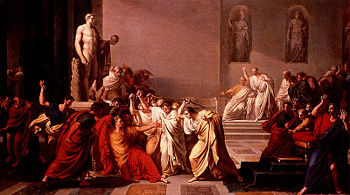Dictator

A dictator is an absolute ruler of a nation or an empire with extensive control over the government and military. Unlike a king, a dictator may or may not have come to power through a process of hereditary succession. The term generally has negative connotations, but in history, this has not always been the case. The first use of the term was a specific office in Roman government which was appointed by the Roman Senate only during emergencies and only for a period of six months. For example, when Rome was besieged during the early days of its republic, a dictator was summoned to restore order and make decisions quickly; it worked, and the invaders were soon repelled and order restored. When a dictator is kind and wise, he or she may be called a benevolent dictator, but mostly rule by dictators is assumed to be tyrannical, oppressive, with no regard for law and order, and issuing decrees without oversight by an elected assembly such as a legislature, and with no restraints by a Constitution using a system of checks and balances.